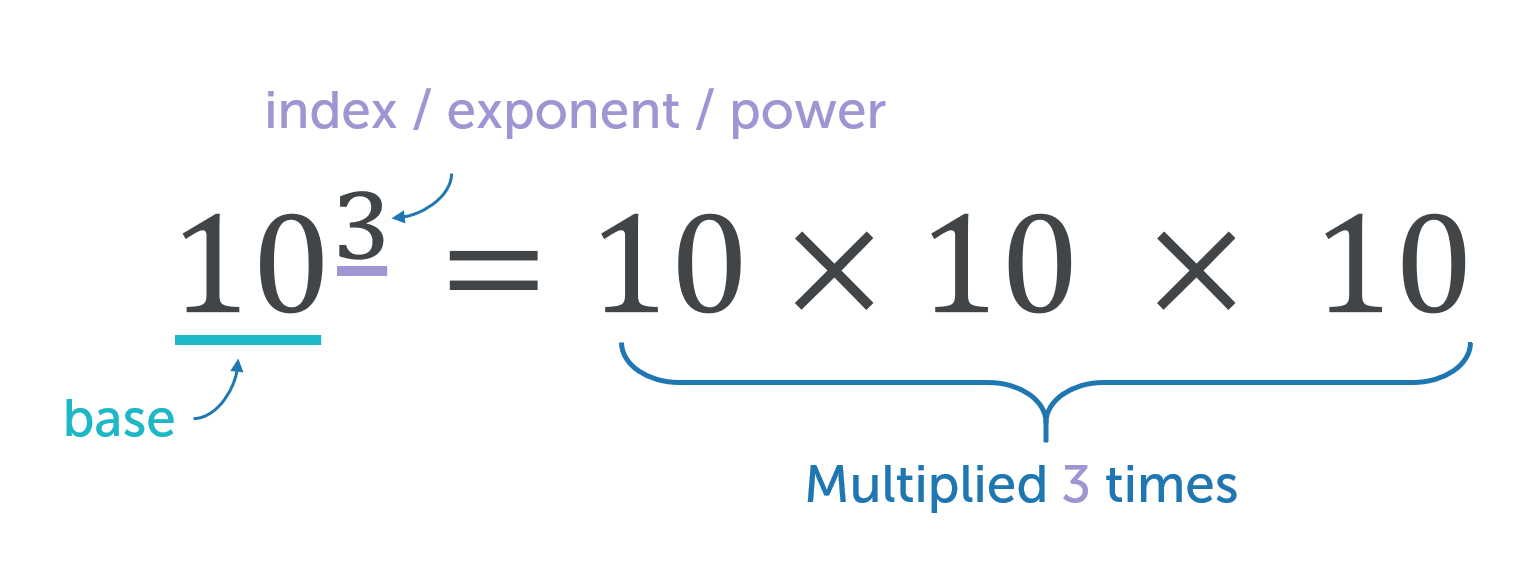IB MYP 4-5 Maths-Laws of exponents - Study Notes - New Syllabus
IB MYP 4-5 Maths- Laws of exponents – Study Notes
Standard
- Laws of exponents
IB MYP 4-5 Maths- Laws of exponents – Study Notes – All topics
Laws of Exponents
Laws of Exponents
Exponents (also called powers or indices) follow specific rules when multiplying, dividing, or raising powers. These laws help simplify expressions with powers of the same base.

Key Exponent Laws:
| Name of the Law | Rule | Example |
|---|---|---|
| Product Rule | \( a^m \cdot a^n = a^{m+n} \) | \( 3^2 \cdot 3^4 = 3^6 \) |
| Quotient Rule | \( \frac{a^m}{a^n} = a^{m-n} \) | \( \frac{2^5}{2^2} = 2^3 \) |
| Power of a Power | \( (a^m)^n = a^{mn} \) | \( (5^2)^3 = 5^6 \) |
| Power of a Product | \( (ab)^n = a^n \cdot b^n \) | \( (2 \cdot 3)^2 = 2^2 \cdot 3^2 = 4 \cdot 9 = 36 \) |
| Zero Exponent | \( a^0 = 1 \) (where \( a \neq 0 \)) | \( 7^0 = 1 \) |
| Negative Exponent | \( a^{-n} = \frac{1}{a^n} \) | \( 2^{-3} = \frac{1}{2^3} = \frac{1}{8} \) |
Integer Exponents
An integer exponent means the base is multiplied by itself multiple times.
- Positive Exponent: \( a^n = a \cdot a \cdot a \cdots a \) (n times)
- Zero Exponent: \( a^0 = 1 \), as long as \( a \neq 0 \)
Example:
Evaluate: \( 4^3 \)
▶️ Answer/Explanation
Step 1: Multiply 4 by itself 3 times
\( 4 \times 4 \times 4 = 64 \)
Final Answer: \(\boxed{64}\)
Example:
Simplify: \( 7^0 \)
▶️ Answer/Explanation
Any number to the power of 0 is 1
Final Answer: \(\boxed{1}\)
Negative Exponents
A negative exponent means the reciprocal (1 divided by the base raised to the positive exponent):
\( a^{-n} = \frac{1}{a^n} \)
This rule helps convert expressions into positive exponents for simplification.
Example:
Simplify: \( 3^{-2} \)
▶️ Answer/Explanation
Step 1: Use the rule for negative exponents
\( 3^{-2} = \frac{1}{3^2} = \frac{1}{9} \)
Final Answer: \(\boxed{\frac{1}{9}}\)
Example:
Simplify: \( \frac{1}{10^{-3}} \)
▶️ Answer/Explanation
Step 1: Negative exponent in denominator becomes positive
\( \frac{1}{10^{-3}} = 10^3 = 1000 \)
Final Answer: \(\boxed{1000}\)
Example:
Simplify the expression: \( \displaystyle \frac{3^4 \cdot 3^{-2}}{(3^2)^2} \)
▶️ Answer/Explanation
Apply the product rule to the numerator
\( 3^4 \cdot 3^{-2} = 3^{4 + (-2)} = 3^2 \)
Simplify the denominator using the power of a power rule
\( (3^2)^2 = 3^{2 \cdot 2} = 3^4 \)
Apply the quotient rule
\( \frac{3^2}{3^4} = 3^{2 – 4} = 3^{-2} \)
Convert negative exponent to positive
\( 3^{-2} = \frac{1}{3^2} = \frac{1}{9} \)
